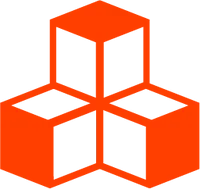@threlte/extras
useGltfAnimations
Convenience hook to use animations loaded with a <GLTF> Threlte component.
<script lang="ts">
import { Canvas } from '@threlte/core'
import Scene from './Scene.svelte'
</script>
<Canvas>
<Scene />
</Canvas><script lang="ts">
import { T, useThrelte } from '@threlte/core'
import { OrbitControls } from '@threlte/extras'
import { Color } from 'three'
import Tokyo from './Tokyo.svelte'
const { scene } = useThrelte()
scene.background = new Color(0xeae8e2)
let showTokyo = true
</script>
<svelte:window
on:keypress={() => {
showTokyo = !showTokyo
}}
/>
<T.PerspectiveCamera
makeDefault
position={[600, 200, 600]}
near={10}
far={10000}
>
<OrbitControls
autoRotate
autoRotateSpeed={0.2}
enableDamping
enableZoom={false}
target={[-60, -75, 0]}
/>
</T.PerspectiveCamera>
<T.AmbientLight />
<T.DirectionalLight position={[5, 10, 5]} />
{#if showTokyo}
<Tokyo />
{/if}<script lang="ts">
import { GLTF, useGltfAnimations } from '@threlte/extras'
const { gltf, actions } = useGltfAnimations<'Take 001'>()
$: $actions['Take 001']?.play()
</script>
<GLTF
bind:gltf={$gltf}
url="/models/LittlestTokyo.glb"
useDraco="https://www.gstatic.com/draco/v1/decoders/"
/>Model: Littlest Tokyo by Glen Fox, CC Attribution.
Examples
Basic Example
<script lang="ts">
import { GLTF, useGltfAnimations } from '@threlte/extras'
// `useGltfAnimations` returns stores that populate
// when the `<GLTF>` component finished loading.
const { gltf, actions, mixer } = useGltfAnimations<'All Animations'>()
// Play them whenever you need
export const triggerAnimation = () => {
if ($mixer) $mixer.timeScale = 0.5
$actions['All Animations']?.play()
}
</script>
<!-- Bind the store `gltf` -->
<GLTF
url={'/Bengal.glb'}
bind:gltf={$gltf}
/>Using the useGltf Hook
Sometimes you might want to use the hook useGltf to reuse parts of a model or use the embedded camera. In this case, the hook useGltf returns an object with a property gltf which you can pass as the first argument to the hook useGltfAnimations.
<script lang="ts">
import { T } from '@threlte/core'
import { useGltfAnimations, useGltf } from '@threlte/extras'
// In this example, the useGltf hook returns a Writable<THREE.GLTF> store
const gltf = useGltf('/path/to/model.glb')
// Provide that store to the hook useGltfAnimations
useGltfAnimations<'All Animations'>(gltf)
// play the animation as soon as it's loaded
$: $actions['All Animations']?.play()
</script>
{#if $gltf}
<T is={$gltf.scene} />
{/if}Applying animations to a different root
Sometimes you want to apply the animations to a different root than the GLTF scene. In this case, pass the root as the second argument to the hook useGltfAnimations.
<script>
import { useGltfAnimations, useGltf } from '@threlte/extras'
import { Group } from 'three'
const gltf = useGltf('/path/to/model.glb')
const group = new Group()
const { root } = useGltfAnimations(gltf, group)
</script>
{#if $gltf}
<T is={group}>
<T is={$gltf.scene}>
</T>
{/if}This can also be done after the animations have been loaded. In this case, you can use the bind:ref directive to bind the root to the root store returned by the hook.
<script>
import { useGltfAnimations, useGltf } from '@threlte/extras'
import { Group } from 'three'
const gltf = useGltf('/path/to/model.glb')
const { root } = useGltfAnimations(gltf, group)
</script>
{#if $gltf}
<T.Group bind:ref={$root}>
<T is={$gltf.scene}>
</T>
{/if}Types
const {
gltf, // Writable<GLTF | undefined>
mixer, // AnimationMixer
actions, // CurrentWritable<Record<string, AnimationAction>>
root // CurrentWritable<Root | undefined>
} = useGLtfAnimations()